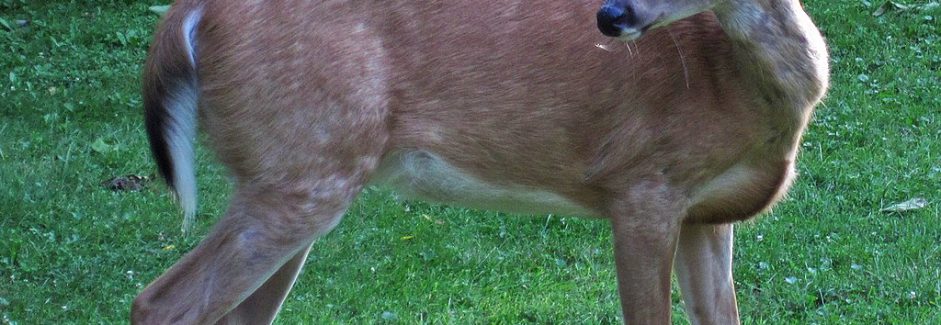We are fortunate to live in an area where there is natural beauty and a multitude of wildlife, including deer.

We have heard from some neighbors that others might be feeding the deer, which is increasing their presence in the neighborhood and causing considerable damage, among other problems like:
- Deer become dependent on artificial feeding.
- Damage the natural habitat. Deer that are being fed artificially also eat vegetation in the surrounding area, which can lead to over-browsing. Plants, shrubs fruit trees, and evergreens in the area will be damaged, eaten, or trampled by deer. The result is a habitat that supports fewer animals, not more.
- Decrease nutrition for deer during winter. Deer are ruminants similar to cows and have a multi-chambered stomach with a complicated digestive process. If the type of food the deer consume is suddenly changed through feeding by humans, it can take considerable time for the digestive process to adapt to new food. The deer then receive little nutrition when they need it most.
- Acclimation of deer to human presence, leading to other dangerous interactions between deer and humans.
- Negatively affect deer behavior (i.e., competing for the artificial food source), leading to increased social conflict among deer.
- Alter the migratory movements of deer away from critical wintering areas.
- Increase the number of deer-vehicle collisions.
Please be aware that feeding deer in the lower peninsula of Michigan is illegal:
Michigan DNR – Baiting and Feeding
We kindly ask our Lakeshore Woods neighbors to refrain from feeding deer or leaving food out for wildlife.
— The Lakeshore Woods Board of Directors

